
Luise Hensel (30 March 1798 to 18 December 1876) was a German teacher and religious poet, who influenced the romantic style of her friend and fellow poet, Clemens Brentano.

Luise Hensel (30 March 1798 to 18 December 1876) was a German teacher and religious poet, who influenced the romantic style of her friend and fellow poet, Clemens Brentano.
Luise Hensel was the sister of Wilhelm Hensel and the sister-in-law of the composer Fanny Mendelssohn. She was born on March 30, 1798. Her father, Johann, was a Lutheran minister at Linum, a small town in the Margravate of Brandenburg, Kingdom of Prussia. After the death of her father, in 1809, Luise's mother with her son and three daughters returned to her hometown, Berlin. Luise attended the high school (Realschule), now the Elisabethschule, where she showed extraordinary talent. [1]
Around 1816, she met the poet Clemens Brentano, who called her "the angel in the wilderness". Hensel influenced the romantic style of Brentano quite significantly; Brentano wrote the following to his brother in 1817: "These songs (referring to twenty songs sent to him by Hensel) at first broke my heart, causing me to burst into tears, their truth and simplicity striking me as the holiest that man could produce." [1] Like Brentano, the composer Ludwig Berger held an unrequited love for Hensel.
Another author, Wilhelm Müller, was also unlucky in love with Hensel. The story of this unfulfilled love is recorded in two works composed by Franz Schubert, the song cycle Die schöne Müllerin (English: The pretty mill-girl) and Winterreise (English: Winter Journey). The love of another man, casual friend Ludwig von Gerlach, who would later become a teacher of Otto von Bismarck, led to Hensel enjoying a high place within the Centre Party, a powerful political party in Germany at the time. This conflicted with her religious feelings, and on 8 December 1818, in the Hedwigskirche, Berlin she joined the Catholic Church. [1]
These circumstances weighed heavily on Hensel, and in 1819, she left Berlin. She entered into the service of Princess Mimi Salm-Reifferscheidt-Krautheim, traveling first to Münster, and eventually to Düsseldorf. In Münster, under the influence of religious teacher Bernhard Overberg, her convictions deepened. Later, on March 6, 1820, she took a vow of virginity.
For a number of years, she was companion to the Princess Salm of Munster. In 1821, she took a job as a teacher for the widow of the poet Count Friedrich Leopold zu Stolberg in the town of Sondermühlen, where she stayed until 1823. While there she came to the end of her religious development, and decided to take her foster son and move. They moved to the small Westphalian town of Wiedenbrück, where she enrolled him in the local boys' school. They lived a quiet life in the town until the year 1827.


She began teaching at Saint Leonard's Academy in Aachen, where she taught for six years, teaching, among others, the eventual founder of the "Sisters of the Poor Children of Jesus," Clara Fey. In 1826, Pauline Mallinckrodt, foundress of the Sisters of Christian Charity, became one of Luise's students. [2] In 1833 Luise returned to Berlin to care for her aged mother.
Her religious convictions were once again tested by love, this time in the form of a marriage proposal from a doctor, Clemens August Alertz, who would later become the personal physician to Pope Pius IX. She continued to teach, and writing religious poems, moving several times. She spent her last years in Paderborn with her former pupil Pauline Mallinckrodt, at the convent of the Sisters of Christian Charity, where she died on December 18, 1876, at the age of 78.
Her "Gedichte" (English: Poems), which include some work by her sister, Wilhelmine, were published in 1858, and show a wistful piety on the part of Hensel, a prime example of German religious poetry. Two more books, compilations of her songs and poems, were published: "Lieder" (English: Songs) in 1869, and her last work, "Briefe der Dichterin Luise H." (English: Letters of the poet Luise H.), posthumously in 1878. Catherine Winkworth translated Immer muss ich wieder lesem as Ever Would I fain be Reading. [3] One of her most well-known poems, "Müde bin ich" (English: I am tired), appears below in its original German, and an English translation. A looser English translation of this by Frances Ridley Havergal is entitled Now the Light Has Gone Away.
Original German:
English Translation:
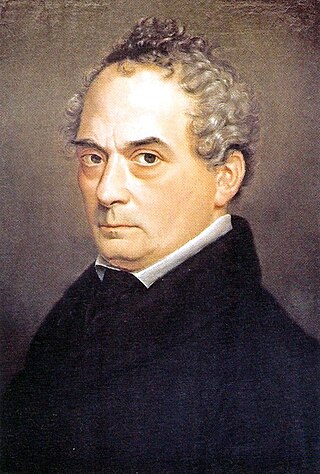
Clemens Wenzeslaus Brentano was a German poet and novelist, and a major figure of German Romanticism. He was the uncle, via his brother Christian, of Franz and Lujo Brentano.

Baroness Anna Elisabeth Franziska Adolphine Wilhelmine Louise Maria von Droste zu Hülshoff, known as Annette von Droste-Hülshoff, was a 19th-century German poet, novelist, and composer of Classical music. She was also the author of the novella Die Judenbuche.

The Lorelei is a 132-metre-high (433 ft), steep slate rock on the right bank of the River Rhine in the Rhine Gorge at Sankt Goarshausen in Germany, part of the Upper Middle Rhine Valley UNESCO World Heritage Site. The 1930s Loreley Amphitheatre is on top of the rock.

Anne Catherine Emmerich was a Roman Catholic Augustinian Canoness Regular of Windesheim, mystic, Marian visionary, ecstatic and stigmatist.
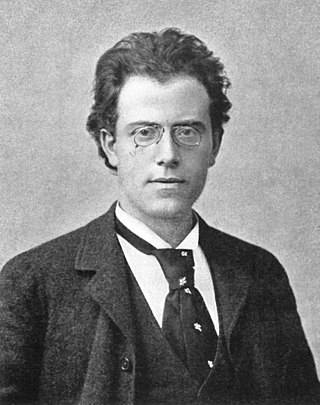
Lieder eines fahrenden Gesellen is a song cycle by Gustav Mahler on his own texts. The cycle of four lieder for medium voice was written around 1884–85 in the wake of Mahler's unhappy love for soprano Johanna Richter, whom he met as the conductor of the opera house in Kassel, Germany, and orchestrated and revised in the 1890s.

Kindertotenlieder is a song cycle (1904) for voice and orchestra by Gustav Mahler. The words of the songs are poems by Friedrich Rückert.
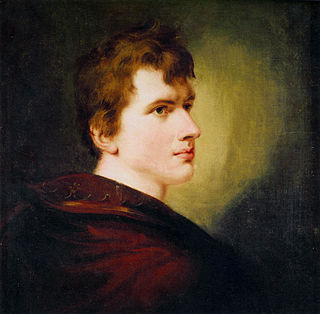
Carl Joachim Friedrich Ludwig von Arnim, better known as Achim von Arnim, was a German poet, novelist, and together with Clemens Brentano and Joseph von Eichendorff, a leading figure of German Romanticism.

Bettina von Arnim, born Elisabeth Catharina Ludovica Magdalena Brentano, was a German writer and novelist.

Else Lasker-Schüler was a German-Jewish poet and playwright famous for her bohemian lifestyle in Berlin and her poetry. She was one of the few women affiliated with the Expressionist movement. Lasker-Schüler fled Nazi Germany and lived out the rest of her life in Jerusalem.
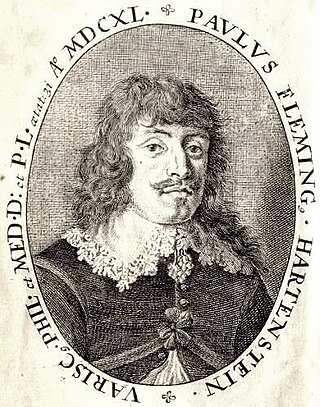
Paul Fleming was a German physician and poet.

"Gretchen am Spinnrade", Op. 2, D 118, is a Lied composed by Franz Schubert using the text from Part One, scene 15 of Johann Wolfgang von Goethe's Faust. With "Gretchen am Spinnrade" and some 600 other songs for voice and piano, Schubert contributed transformatively to the genre of Lied. "Gretchen am Spinnrade" was composed for soprano voice but has been transposed to accommodate other voice types. Schubert composed "Gretchen am Spinnrade" on 19 October 1814, three months before his eighteenth birthday.

The Immortal Beloved is the addressee of a love letter which composer Ludwig van Beethoven wrote on 6 or 7 July 1812 in Teplitz in what would be today Czech Republic. The unsent letter is written in pencil on 10 small pages. It was found in the composer's estate following his death and is now in the Berlin State Library.
Paul Hugo Wilhelm Hensel was a German philosopher.

Ireen Sheer is a German-English singer. She had a top five hit on the German singles chart with "Goodbye Mama" in 1973. She went on to finish fourth at the Eurovision Song Contest 1974 representing Luxembourg, sixth at the Eurovision Song Contest 1978 representing Germany, and thirteenth at the Eurovision Song Contest 1985 representing Luxembourg again.

Pauline Von Mallinckrodt, SCC was a German Roman Catholic professed religious and the foundress of the Sisters of Christian Charity. Born into an aristocratic household as the daughter of a Lutheran father and Catholic mother, from her adolescence she began to tend to the blind and sick. This venture expanded into what became a religious congregation which spread at a rapid pace; she herself traveled to a range of places to oversee its growth and development.

Sophie Friederike Mereau was a writer associated with German Romanticism. Her maiden name was Schubart, but she did most of her work under the married name of Mereau. She also later married a second time, to writer Clemens Brentano, and took her husband's surname. She wrote novels, stories and poems, and she translated and published journals.

Sibylle Lewitscharoff was a German author. She first wrote in her spare time as a bookkeeper, quitting after her first novel, Pong, appeared in 1998, and was successful with critics and the public, earning her the Ingeborg Bachmann Prize. It was followed by Consummatus (2006), Apostoloff (2009) and Blumenberg (2011). She received several German literary awards, including the Georg Büchner Prize in 2013, for "[re-exploring] the boundaries of what we consider our daily reality with an inexhaustible energy of observation, narrative fantasy and linguistic inventiveness.".
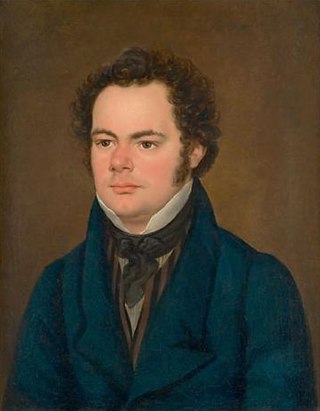
"Du bist die Ruh' ", D. 776; Op. 59, No. 3 is a Lied composed by Franz Schubert (1797–1828) in 1823. The text is from a set of poems by the German poet Friedrich Rückert (1788–1866). It is the third poem in a set of four. This song is set for solo voice and piano.

Drei Chöre, Op. 6, is a set of three compositions for mixed choir and piano by Max Reger, composed before 2 August 1892 in Wiesbaden. The texts are poems by three poets:
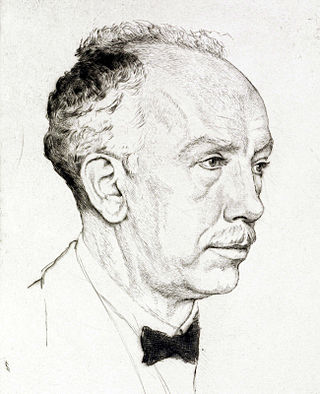
Sechs Lieder, Op. 68, is a collection of six Lieder by Richard Strauss. He composed them, setting poems by Clemens Brentano, in 1918 for soprano and piano, and orchestrated one in 1933 and five in 1940. The piano version was first published by Adolph Fürstner in Berlin in 1919. They are also known as Brentano Lieder.